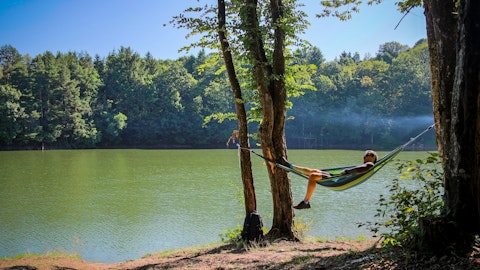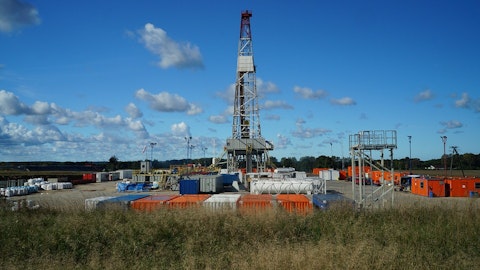And I would add, and Steve mentioned it in his prepared remarks, we are on track, both from a cost and a timing perspective with the project. We’re early in the project, but we’re wrapping up the early prep work that we could do before the winter season hit us in Wyoming, and we’re very pleased with their progress.
Richard Sunderland: And maybe one last one from me. Just the rate case settlement, obviously, great progress there, and still a little work to be done in terms of a final commission order. Any thoughts on kind of the backdrop feeding into that process, your ability to reach a settlement now? How do you feel about where you’ve gotten and your outlook in the states coming off this agreement?
Scott Carter: As Suzanne mentioned, we’re happy to be at this point of the process. We had filed the case resolve. Obviously, many of the deficiencies coming out of the last case and the timely resolution is important to us. Getting all parties on board and having a unanimous stipulation that the commission can consider is a positive for us. And we expect the commission to take that up and take seriously all the parties’ interest that got settled through that collaboration through that negotiation process. So we thought we’re well positioned from that standpoint of fixing the overheads issue that was created, clawing out of some of the cost of capital issues and updating the capital we’ve deployed since the previous case. So it puts us on a pretty solid footing as a place from which to grow and continue to operate.
Operator: The next question comes from Christopher Jeffrey with Mizuho Securities.
Christopher Jeffrey: Just wondering as far as your expectations for bad debt expense, and it seems like comparing your PGA for the upcoming winter from two years ago, bills are up pretty significantly. I’m just kind of wondering how you’re thinking about that and maybe how much relief do you expect once the year reportion of the bills roll off? And I guess if you could confirm, is that — this is the second heating season of that or the first of the three?
Adam Woodard: On the PGA side, we did file Missouri, an updated PGA increase, that will be approximately a 9% increase on bills. We, I think, have done a good job trying to keep that to a minimum and the supply team is really has done a great job working through our hedge program and such. So yes, as Steve has mentioned in his remarks, we really have leaned into the customer impact portion of this and continue to do so, but we’re pleased to keep that last increase on a more limited basis. And then similarly, not too long — a little bit longer ago, we have had some steady increases in Alabama as well, that’s in the mid-teens or so on a year-over-year basis, but again, continue to look to keep that under control.
Scott Carter: I would add to that. Just the highlights we gave and where we’re putting additional funding towards those low income assistance programs. We are in the second year of trying to work through the yearly cost and the discount that we’re carrying over there. But as we work through this case, we’re really focused on those customer impacts, and those mostly impacted at the more challenging income levels. And so we believe those tools will be helpful in helping manage through keeping customers on keeping them served, and help us manage bad debt a bit.
Christopher Jeffrey: And then maybe just following up on the rate case settlement. I don’t think there are many details as far as the authorized ROE or the cap structure. Are there any kind of puts and takes away from it, like maybe as far as the resolution on the short term debt issue or should we expect to hear more from it after Friday, when the case kind of goes before the commission?





